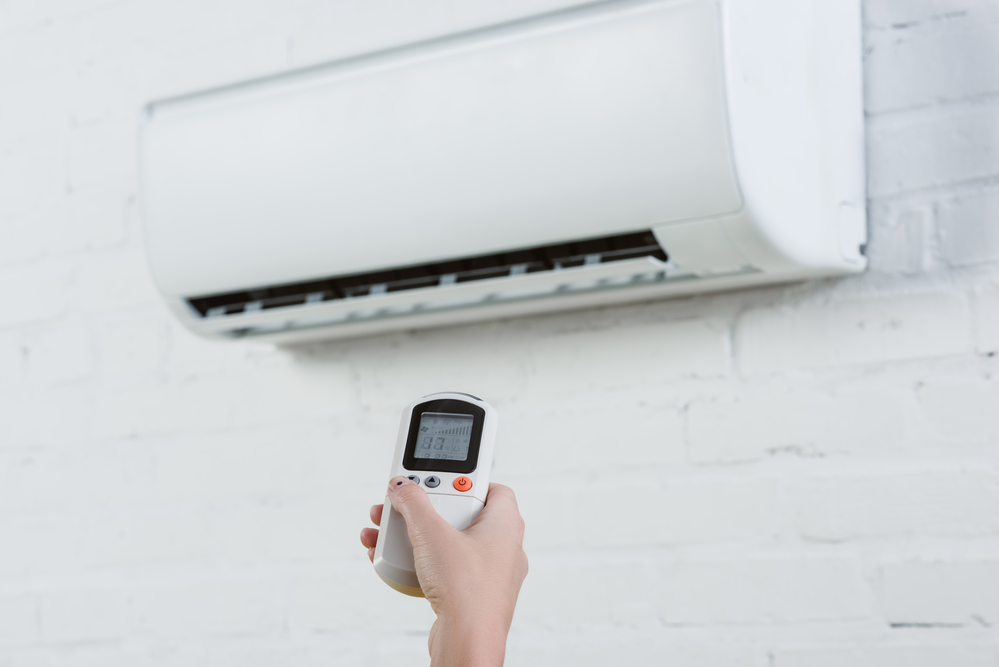
As summer approaches and temperatures rise, the importance of a reliable and efficient air conditioning system becomes paramount. Over time, air conditioning systems can deteriorate or become outdated, leading to decreased performance, frequent breakdowns, and rising energy costs.
Recognizing the signs that it might be time to replace your air conditioning system is crucial for avoiding unexpected breakdowns and ensuring optimal cooling performance. So, let’s explore the path to beating the heat with a new and reliable air conditioning system.
Assessing Your Needs
To ensure the new air conditioning system meets your cooling requirements, it’s essential to assess your specific needs. Determine the size and layout of the space you need to cool. Factors such as room dimensions, insulation, and the number of occupants will influence the cooling capacity needed for optimal comfort.
Choosing the right-sized system is crucial for efficient and effective cooling. An undersized system will struggle to cool the space adequately, while an oversized system may cycle on and off frequently, leading to energy wastage and discomfort.
Look for air conditioning systems with high energy efficiency ratings. Energy-efficient models not only save you money on utility bills but also contribute to environmental sustainability. Look for the Energy Star label and check the SEER (Seasonal Energy Efficiency Ratio) rating, with higher numbers indicating better efficiency.
Types of Air Conditioning Systems
When replacing your air conditioning system, it’s important to consider the different types available. Here are some common options to explore:
- Central air conditioning systems: These systems are designed to cool the entire house by distributing cool air through ducts and vents. They provide consistent and even cooling but require ductwork installation. Central air conditioning systems are ideal for larger spaces or homes with existing ductwork.
- Ductless mini-split systems: Ductless systems consist of an outdoor unit and one or more indoor units, allowing for zone-based cooling. They are versatile, energy-efficient, and do not require ductwork. Ductless systems are suitable for homes without existing ducts or for specific areas that require individualized cooling.
- Window units and portable air conditioners: These are self-contained units that can be installed in windows or moved from room to room. They are affordable and offer localized cooling. Window units are permanently installed, while portable air conditioners offer flexibility and can be easily moved. They are suitable for small spaces or temporary cooling needs.
Factors to Consider
When replacing your air conditioning system, several important factors should be taken into account.
Determine your budget for the replacement, including the cost of the new system, installation expenses, and any additional modifications required. Balance your budget with the long-term benefits and energy savings that a more efficient system can provide.
Energy-efficient air conditioning systems may have a higher upfront cost but can lead to significant long-term savings on your energy bills. Look for systems with high SEER ratings and energy-saving features such as programmable thermostats and variable-speed compressors.
Consider systems that use refrigerants with lower environmental impact, such as those that comply with the latest regulations on ozone depletion and global warming potential. Additionally, energy-efficient systems contribute to reducing greenhouse gas emissions.
If you are replacing a central air conditioning system, ensure that the new system is compatible with your existing ductwork and electrical setup. In the case of ductless systems, verify the suitability of your space for the installation of indoor and outdoor units.
Professional Installation
When replacing your air conditioning system, it is highly recommended to enlist the services of a qualified HVAC professional for the installation process. Proper installation is crucial for the optimal performance, efficiency, and longevity of your new air conditioning system. HVAC professionals have the knowledge, expertise, and experience to ensure a correct and safe installation.
It’s advisable to obtain quotes from multiple reputable HVAC contractors. Compare the pricing, services offered, and warranties provided to make an informed decision. Consider factors such as the contractor’s reputation, experience, and customer reviews.
Before hiring an HVAC professional, verify their licenses, certifications, and insurance. This ensures that they meet the necessary qualifications and comply with local regulations. Working with licensed professionals gives you peace of mind and protects you from potential liability.
Maintenance and Warranty
After replacing your air conditioning system, it’s important to prioritize regular maintenance and understand the warranty coverage. Familiarize yourself with the manufacturer’s recommended maintenance tasks and intervals. This may include filter replacements, coil cleaning, lubrication, and system inspections.
Review the warranty provided by the manufacturer or installer. Understand what components and repairs are covered, the duration of coverage, and any conditions or limitations. Keep in mind that proper maintenance may be a requirement to maintain warranty validity.
Schedule professional servicing and tune-ups for your air conditioning system at least once a year. This allows HVAC technicians to perform comprehensive inspections, clean and calibrate the system, and address any potential issues before they escalate.
Financial Incentives and Rebates
When replacing your air conditioning system, it’s worth exploring potential financial incentives and rebates that can help offset the cost and encourage energy efficiency.
Many governments and utility companies offer incentives and rebates to promote energy-efficient upgrades, including air conditioning systems. These incentives can include cash rebates, tax credits, or low-interest financing options.
Some energy-efficient air conditioning systems may carry certifications that make them eligible for additional incentives. For example, the Energy Star certification indicates that the system meets specific efficiency criteria. Look for systems with these certifications to maximize your chances of qualifying for financial incentives.
Conclusion
In conclusion, replacing your air conditioning system requires careful consideration and evaluation of various factors. By recognizing the signs that indicate it’s time for a replacement, you can proactively address cooling inefficiencies and discomfort.
Stay cool, efficient, and environmentally conscious with your new air conditioning system, enjoying the benefits of optimal cooling performance and cost savings for years to come.






